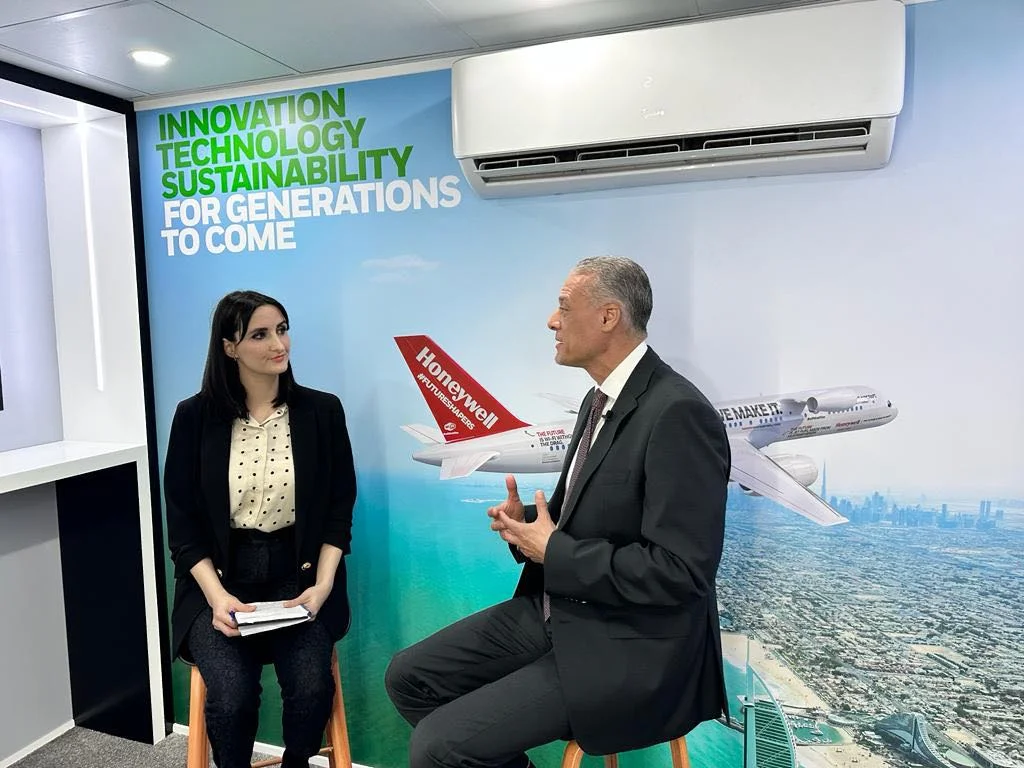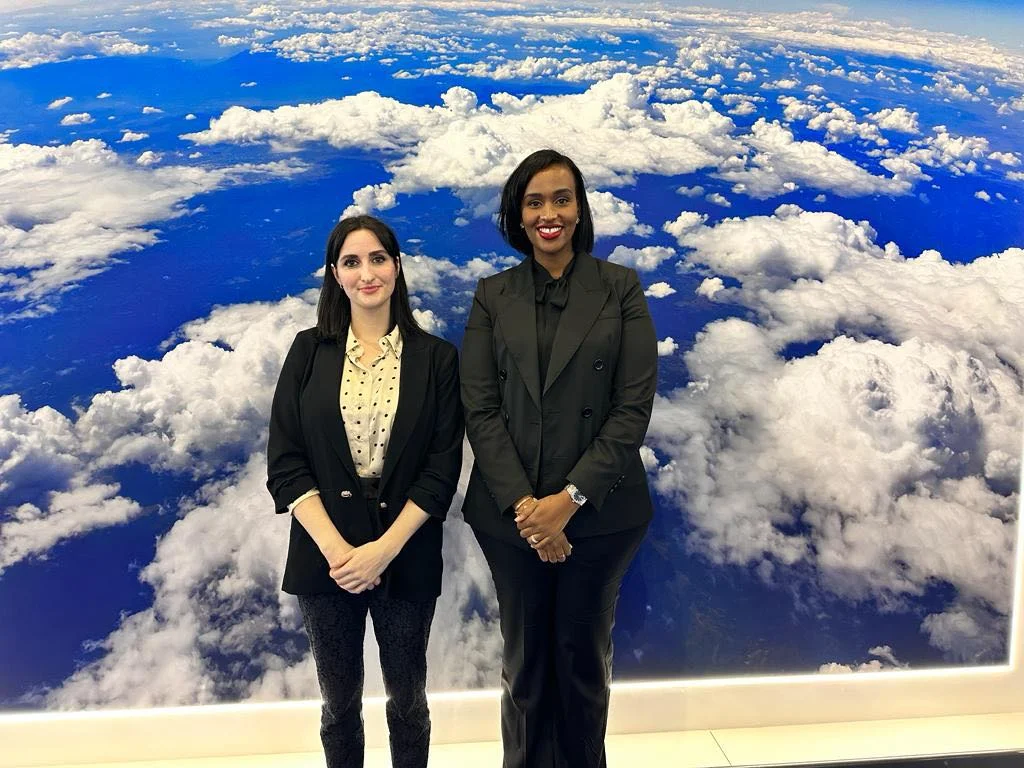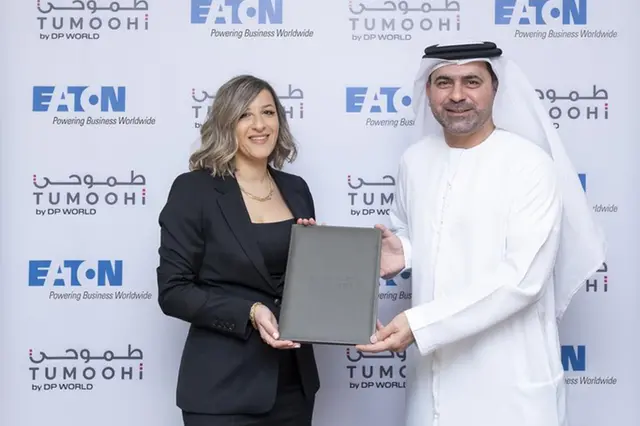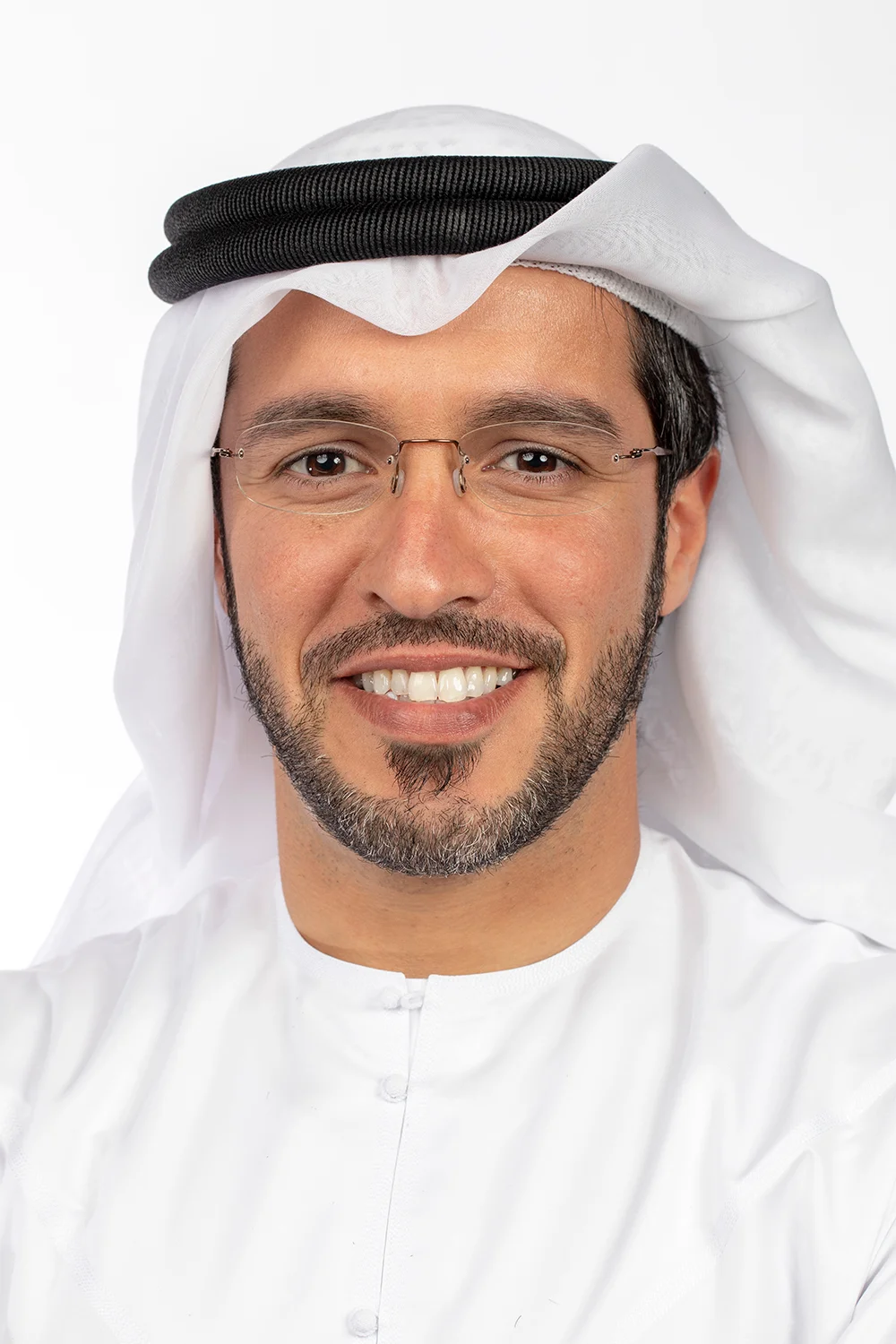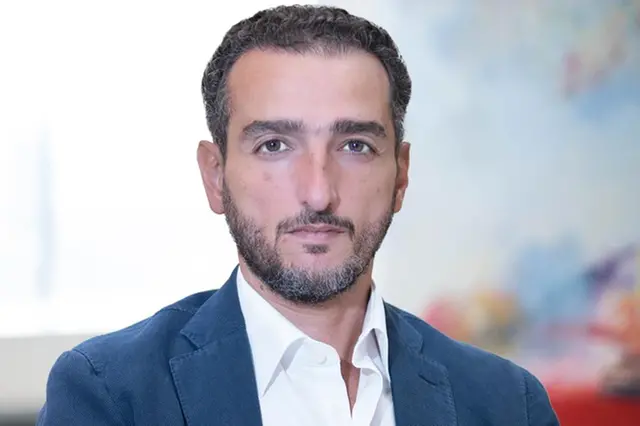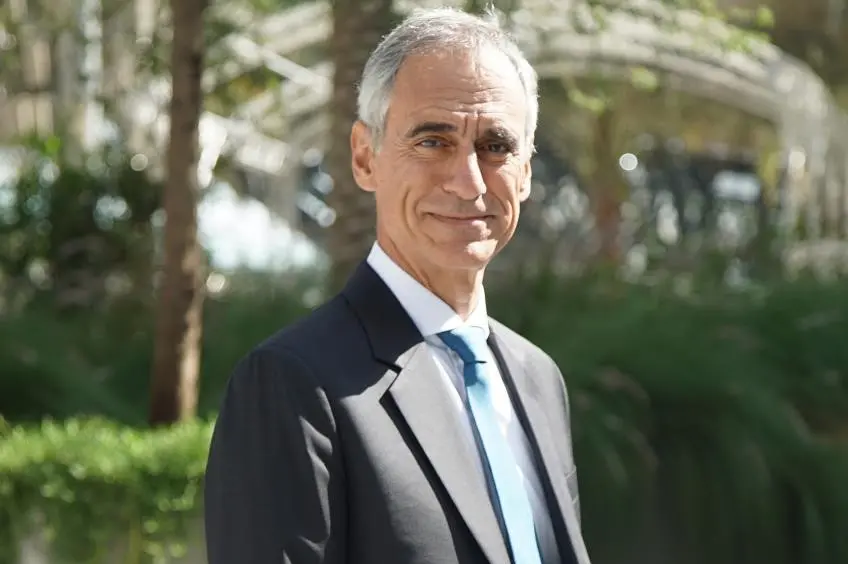Monthly Archives
November 2023
Forex.com: COP28 to supercharge interest in ESG investing projected to reach $53 Trillion by 2025
written by Madaline Dunn
A report from Forex.com has outlined that with the UAE hosting the pivotal COP28, the intersection of climate policy and market strategy is more prominent than ever.
Discerning traders, it said, are positioning themselves to take advantage of specialised financial products that are both climate-forward and financially astute, including the Green Index, the ESG Index, the EV Index, and the EUA Futures CFDs.
These advanced trading instruments and sustainable indices hold strategic importance in the context of COP28’s environmental mandates, as investors apply non-financial factors as part of their analysis process to identify material risks and growth opportunities, according to the CFA Institute.
“ESG assets are anticipated to surpass $53 trillion by the year 2025 on a global scale, which constitutes over one-third of the projected total assets under management, amounting to $140.5 trillion”,said Ritu Singh, Regional Director of StoneX Group Inc., adding: “This significant growth is driven by a confluence of factors, including the impact of the pandemic and the sustainable recovery initiatives in the United States, European Union, and China.”
On a regional level, the UAE and GCC markets stand at the forefront of promoting environmental, social, and governance (ESG) practices.
In fact, a recent publication by PwC states that “the UAE has been making significant strides towards sustainability and ESG integration, setting a new standard for the entire region”.
In this context, investors have been increasingly interested in the Green Index and the ESG Index, which they can trade while gaining exposure to ESG companies in an index, by purchasing an index mutual fund or exchange-traded fund (ETF) that seeks to replicate the performance of that index.
From one hand, the ESG Index provides a comprehensive framework for evaluating and identifying companies based on the sustainability of their business practices. It serves as a critical benchmark that integrates a company’s environmental impact, social responsibility, and governance standards into its valuation.
With COP28 setting new sustainability standards, the ESG Index may serve as a leading indicator for companies likely to outperform in a regulatory environment increasingly favoring sustainable practices.
On the other hand, the Green Index tracks about 30 securities issued for green, social, or sustainable purposes. It offers a sophisticated approach for traders looking to diversify their portfolio with sustainability in mind.
It’s a composite of carefully vetted equities, focusing on companies with a significant footprint in green technology and sustainable practices. With COP28 emphasising sustainable growth, the Green Index is poised to reflect the expected regulatory boosts and technological advancements, thereby offering traders a dynamic tool for environmentally aligned investment.
EUA Futures CFDs have also gained visibility, representing a direct line to the pulse of the carbon market, with EUAs depicting the emission allowances in metric ton of carbon dioxide or an equivalent greenhouse gas by each EU member state. These indices allow traders to speculate on the price of carbon credits, with a keen understanding of the EU’s cap-and-trade system.
In a nutshell, such financial instruments provide sophisticated avenues for aligning trading strategies with the COP28 climate agenda. For traders in the UAE and globally, these tools represent a pathway to potential profitability in a world increasingly driven by green initiatives, and they can be accessed through trusted trading partners like FOREX.com, which has an office in Dubai.
Eaton and DP World join forces to upskill Emirati talent through the Tumoohi programme
written by Madaline Dunn
Eaton has announced a collaboration to support DP World’s Tumoohi training programme by providing young UAE nationals with an opportunity to gain professional experience in the energy sector.
DP World’s Tumoohi is a training programme designed to boost the careers of young and talented UAE nationals by equipping them with skills essential for success, with hands-on workplace experience through apprenticeships.
Emirati professionals will gain insights into best practices across a wide range of departments from Human Resources, Global Trade Management, Supply Chain, and Procurement at Eaton Middle East’s regional headquarters in National Industries Park, Jebel Ali, Dubai.
Further, participants will also be able to work with Eaton teams across the EMEA region, ensuring a global perspective and the opportunity to collaborate with industry leaders.
Marwan Al Jassmi, Senior Vice President People at DP World GCC, said: “Our collaboration with Eaton underscores DP World’s unwavering commitment to nurturing Emirati talent and broadening their exposure to different industries. By combining Eaton’s global expertise with our Tumoohi programme, we aim to provide young Emiratis with a world-class training experience in the energy sector. This partnership is an investment in the future leaders of our nation.”
Heba Abaza, Human Resources Leader, Eaton Middle East, said: “Eaton is committed to developing the next generation of Emirati talent, in line with the strategic national plans set by the UAE government. Through our headquarters in Dubai and our newly opened Customer Experience Centre, we can provide participants of this exceptional programme the exposure to work with one of the world’s leading global power management companies. We aim to provide young and talented Emiratis the capabilities and expertise of working with a global company in a local environment, gaining professional and specialized skills to prepare them for working in the private and public sectors.”
Global Food Security Summit in London: H.E Mariam Almheiri calls for world leaders to “walk the talk” on food
written by Madaline Dunn
At the Global Food Security Summit in London, Her Excellency Mariam bint Mohammed Almheiri, UAE Minister of Climate Change and Environment and COP28 Food Systems Lead, called on global leaders to work collectively and creatively to unlock the potential of food systems in the fight against climate change.
The event, held in partnership between the UAE, the UK and Somalia, and sponsored by the Children’s Investment Fund Foundation and the Bill & Melinda Gates Foundation, demonstrates the United Kingdom’s support for the COP28 Food Systems and Agriculture Agenda, including the endorsement of the Emirates Declaration on Resilient Food Systems, Sustainable Agriculture, and Climate Action.
The Declaration commits nations to putting climate action at the heart of their food systems by aligning their national food systems and agricultural strategies with their Nationally Determined Contributions, National Adaptation Plans and National Biodiversity Strategies.
It forms part of the first of four pillar’s that make up the COP28 Food Systems and Agriculture Agenda – galvanising national leadership; involving non-state actors; boosting innovation; and scaling up finance.
Her Excellency said: “What we are seeing unfold around the global is a devastating cycle of escalating climate threats that can be avoided, but only if we show the resolve to make a difference and walk the talk”.
“I am delighted that the United Kingdom supporting Emirates Declaration on Resilient Food Systems, Sustainable Agriculture, and Climate Action. It is only through collective action can we make a substantial change and protect our planet and people”.
In her opening remarks, H.E Mariam Almheiri stressed as hosts of COP28 in just ten days’ time, the UAE intends to “build on top of the momentum of action for the food and climate agenda which was firmly set on course by the United Kingdom at COP26 and then accelerated and further accentuated by Egypt at COP27”.
She outlined through its COP28 Food Systems and Agriculture Agenda, the UAE will elevate the food systems debate and “place it at the very heart of the Presidential Action Agenda”.
Looking ahead to COP28 H.E added: “The program of the COP28 Presidency begins with a high-level session on Food and Climate. Every day thereafter includes at least one Presidency-hosted event related to agriculture and food systems, with the program reaching a crescendo on December 10th, before the Parties move on to the final negotiations on December 11th and 12th, we are marking a day dedicated to food, agriculture, and water”.
H.E. stressed: “Our goal is to highlight the severe pressure and risks that climate change puts on food, agricultural and water systems, which are pivotal to human well-being. At the dedicated day to food, agriculture, and water at COP28, we will reiterate both the challenge and the opportunity presented by food systems and their interactions with our precious planet.”
Later in the afternoon, Her Excellency also opened a series of panel discussions on ‘Building a climate resilient and sustainable agriculture sector and Food System’.
There, she spoke about the importance of innovation, technology, and finance in transforming our food systems and creating a more sustainable world.
Her Excellency detailed the key milestones in UAE’s climate journey to date such as the Cabinet’s recent approval of the Net Zero 2050 Strategy that outlines mechanisms to achieve zero emissions in the UAE across all core sectors, including agriculture, as well as the UAE’s Third Update to its Second Nationally Determined Contribution, the third in three years.
H.E. stated: “By progressively raising ambition we are making real change in our green transformation. It is through the wise direction of the UAE’s leadership that we are able to take bold and deceive steps towards Net Zero and a greener future”.
Senseable Dubai Lab, which is an initiative by Dubai Future Foundation (DFF) and Massachusetts Institute of Technology (MIT) Senseable City Lab, recently hosted an event at Dubai Future Labs, together with the Consulate General of Italy in Dubai, with the aim of exploring the role of AI in the future of food security and sustainability.
The event addressed the role of data and technology in the cities of the future, with a particular focus on food consumption, its impact on the environment and its level of security.
“Food must be one of our top priorities when it comes to anticipating and building the future,” said His Excellency Khalfan Belhoul, CEO of DFF.
“How we approach food security and sustainability today will shape how our cities fare in the future. That is why it is vital for academics, futurists, businesses and governments to come together to address questions on supply chains, agriculture, diets, waste and consumption. Dubai is the ideal platform for convening stakeholders to explore how tech-enabled solutions such as AI can help the global community to tackle food challenges. Not only this, but it is the perfect laboratory for conceptualizing, testing and scaling solutions. In this role as a convenor and technology testbed, Dubai is a vital contributor to overcoming shared challenges.”
“The internet is redefining how we navigate daily life – from living and commuting to shopping, socializing, and working in our cities. In this digital transformation, the availability of food information in our cities reveals aspects of urban life that were previously unseen 10 or 20 years ago. This is a starting point to better understand and subsequently improve the city of Dubai. We are glad to discuss this scenario during this forthcoming conversation and dinner event ”, said Prof. Carlo Ratti.
“We are proud of this collaboration, celebrating the launch of Senseable Dubai Lab on the occasion of the Italian Cuisine week, with renowned Michelin-starred Chef Cristina Bowerman and Chef Luca Crostelli” commented His Excellency Giuseppe Finocchiaro, Consul General of Italy in Dubai. “We believe that food and food dynamics play a key role in our lives, as well as in urban environments; and that it is possible to combine taste with health, of both people and the planet”.
The event featured international speakers and experts who shared their experiences, visions and thoughts on utilising data, the best nutrition practices, and how AI can enhance both food security and the sustainability of food supply chains.
Participants looked at how cities can reduce the carbon footprint of the food sector and discussed raising awareness of the impact of urban environments on our behaviour.
The Senseable Dubai Lab, was launched at the World Government Summit 2023 in Dubai to test, develop and apply the latest solutions and practices in smart cities to strengthen Dubai’s position as one of the world’s most future-ready cities.
The European Bank for Reconstruction and Development (EBRD) has teamed up with A³&Co.®, to lead an initiative at Arabian Cement Company in Egypt.
This collaboration is designed to reduce carbon emissions and costs through innovative, environmentally responsible approaches, supporting Arabian Cement Company’s transition to NetZero.
Through this strategic partnership, EBRD is providing green investment by working closely with A³&Co.® to develop a comprehensive decarbonisation roadmap tailored specifically for Arabian Cement Company to accelerate the production of low-carbon cement, leveraging A³&Co.®’s expertise in cement green solutions and EBRD’s commitment to green initiatives.
This partnership aims to align efforts to pioneer change in the cement industry towards a green cement future by reducing the carbon footprint within the Arabian Cement Company operations.
Arabian Cement Company has two production lines in Sokhna, Suez Governorate, with an annual production of around five million tons of high-quality clinker and cement, contributing 6% of Egypt’s nominal capacity.
“We are excited about this partnership with EBRD and A³&Co.® which showcases our commitment to environmental stewardship and sustainable development,” said Sergio Alcantarilla, CEO of Arabian Cement Company.
“By embracing cutting-edge solutions and adopting greener processes, we are not only reducing our carbon footprint but also setting new benchmarks for the industry.”
The comprehensive strategy includes verified targets, project advisory for implementing decarbonisation implementations, in-house capacity building, carbon market trading, and the implementation of an integrated ESG business model.
“We are delighted to partner with EBRD and Arabian Cement Company on this transformative project,” commented Amr Nader, CEO of A³&Co.®
“Through our collective expertise, we are confident that we can drive meaningful progress towards decarbonization and the production of green cement, setting a precedent for responsible business practices in the region. The cooperation between Arabian cement and A³&Co.® is an additional milestone for our successful collaboration over the past two years and will not only be limited to Decarbonization roadmap but extends to SBTi certification and CBAM registration which will support Arabian cement exports endeavors and global product recognition, A³&Co.® will also develop Climate Corporate Governance “CCG” framework for Arabian Cement which is the cornerstone for a fully functioning ESG system inline with international norms.”
Commenting on the collaboration, Dimitrios Koufos, Head of Sustainable Business, Industry, Agribusiness, and Commerce, EBRD, said: “At EBRD, we are dedicated to supporting initiatives that drive sustainable economic growth. Our partnership with A³&Co.® and Arabian Cement Company exemplifies our commitment to fostering innovation and catalyzing positive change in the industry. Together, we will pave the way for a more sustainable future in Egypt’s cement sector.”
Bain & Company study reveals consumers in the GCC region prioritise sustainability and are willing to pay premium
written by Madaline Dunn
New research from Bain & Company has found that more than 60% of businesses in the GCC region are currently off track to achieve their sustainability goals. The major study exploring the top sustainability concerns for business leaders, their customers, and their employees, found that an increasingly environmentally conscious base of consumers and employees in the GCC may prove “instrumental” in steering businesses towards their sustainability targets.
Indeed, within the study, the pivotal role of technology, policy, and behaviour change in achieving sustainable practices, was underlined.
Bain surveyed 23,000 consumers, and the results underscored the growing urgency of sustainability topics.
Some 64% of people reported high levels of concern about sustainability.
Most said their worries have intensified over the past two years and that their concern was first prompted by extreme weather.
“With the upcoming global focus on the region with COP 28 and the potential implications from this critical gathering, it is critical the CEO’s and Sustainability Plans in the corporate sector take centre stage in the next phase of the world’s transition. Our global report on the topic is grounded on the philosophy of Visionary Pragmatism in this path for executives to adopt as they are navigating taking the global ambitions and translating them into the day-to-day functioning of their respective companies” said Akram Alami, Middle East Partner at Bain & Company.
The Bain & Company research dispelled a number of common misconceptions, including that consumers won’t pay more for sustainable products and that consumer behaviour is fixed.
It discovered that baby boomers are just as concerned as Gen Z, with 72% of Gen Z consumers and 68% of boomers globally being very or extremely concerned about the environment. Moreover, in countries as diverse as India, France, and Japan, boomers are more concerned.
The research also found that as concerns grow, consumers are looking to make environmentally sound choices. Eighty-two per cent of consumers in Europe, the Middle East, and Africa are now likely to recommend a brand after learning that it supports a social cause.
Consumer behaviour can also change more quickly than many companies anticipate, it was found, with external factors such as government regulation heavily influencing the market.
China began offering financial incentives for electric vehicles in 2009, and now 19% of Chinese consumers report driving an electric car, compared with 8% of consumers globally, it was found.
Meanwhile, in England, the use of single-use supermarket plastic bags has fallen by 98 per cent since the government began requiring retailers to charge for them in 2015. A similar effect has been felt in the UAE, with the recent imposition of charges on plastic bags in supermarkets, which has swiftly prompted a notable reduction in their usage.
Further to this, it was found that there is a disconnect between what consumers want and what companies sell. Worldwide, 48% of consumers consider how products are used when considering sustainability.
These consumers are more concerned about how a product can be reused, its durability, and how it will minimise waste.
Contrastingly, most companies sell sustainable goods based on factors such as how they are made, their natural ingredients, and the farming practices deployed.
These factors cause many consumers to conflate “sustainable” with “premium.”
One result of this disconnect, the study found, was that nearly half of all developed-market consumers believe living sustainably is too expensive. By comparison, roughly 35 per cent of consumers in fast-growing markets believe this.
Bain’s survey also found that 50 per cent of consumers said sustainability is one of their top four key purchase criteria when shopping.
Yet, they may be making decisions based on misconceptions, it was shared.
When asked to determine which of two given products generated higher carbon emissions, consumers were wrong or didn’t know about 75 per cent per cent of the time.
Consumers say they rely most on labels and certifications to identify sustainable products, yet most were unable to accurately describe the meaning behind common sustainability logos, such as organic production or Fairtrade.
A lack of trust in corporations compounds the issue, it said.
Bain found only 28 per cent of consumers trust large corporations to create genuinely sustainable products, compared to 45 per cent who trust small, independent businesses.
The momentum behind sustainability and dynamic shifts in consumer behaviour has profound implications for any company. Bain identified four critical areas of focus.
- Devise a future-proof and flexible strategy. Few companies plan beyond the typical three-year strategic planning window, and even those that do look out five to ten years tend to focus on expectations for technology adoption. These plans fail to fully consider two other factors that move just as rapidly and with as big an impact: regulations and consumer behaviour.
- Acknowledge a fragmented consumer base. Companies need to deaverage consumers and innovate products and design propositions that appeal to different segments— local markets, consumers with different definitions of sustainability, and consumers with a range of purchasing motivations.
- Test and learn to determine what works—and repeat. In such a fluid environment, companies can lean aggressively on marketing experimentation, using digital tools to quickly test the sustainability messages that resonate with different segments and adapt accordingly. It’s a way to help consumers gain enough clarity to make decisions that are consistent with their values.
- Get out in front of regulations. Government policy inevitably becomes a huge contributor to changing consumer behaviour. Across all industries, companies need to be at the forefront of helping to shape the regulations affecting their business. A company’s ability to anticipate policy shifts and build future-proof portfolios will help determine whether it can outpace competitors.
Bain found 75 per cent of business leaders believe they have not embedded sustainability well into their business.
The instinct of many CEOs, it said, is to prioritise external hiring to address all skill gaps, including in sustainability. Bain shared that it advocates for addressing sustainability’s challenges through a combination of smart upskilling and cultivating a learning mindset.
A new Bain survey of 4,700 people found 63 per cent felt different skills and behaviours would be required for their company to execute its ESG ambition or strategy. Yet only 45 per cent of nonmanagers said their employer offers the reskilling and upskilling opportunities that would enable internal mobility.
Despite almost every CEO sharing that they have a talent problem, few companies have defined what it means to be a great employer.
In Bain’s recent survey, 44 per cent of respondents said it is easier to find a better opportunity outside their company than within it.
The negotiators and activists preparing to attend the upcoming United Nations Climate Change Conference (COP28) in Dubai are grimly aware that there is no realistic chance of limiting global warming to 1.5° Celsius above pre-industrial levels. But what has become an open secret in climate circles must be shared more widely. Paradoxically, it may be the only way to muster the political will needed to eschew incrementalism in favor of disruptive action that is commensurate with the scale of the challenge.
The official view remains that the 1.5°C target set by the 2015 Paris climate agreement is still achievable, but only if we act decisively and immediately. While that may be true in theory, the necessary reforms are politically painful and therefore almost non-existent. Global coal consumption, for example, climbed to a new all-time high of 8.3 billion tons in 2022. Moreover, Chevron and ExxonMobil recently invested a combined $113 billion in securing additional oil and gas reserves – an unambiguous bet on the long-term profitability of fossil fuels.
It has become starkly apparent that we are barreling toward global temperatures at least 2°C above pre-industrial levels. This aligns with the International Energy Agency’s recent conclusion that, based on today’s policies, global emissions could push up average temperatures by around 2.4°C this century.
A future beyond 1.5°C will look very different from our current reality, and every tenth of a degree will have major consequences. At 2°C warming, it is estimated that around 40% of the world’s population will be exposed to severe heatwaves, while up to one-third will experience chronic water scarcity. The human cost, in terms of displacement, lost livelihoods, and early deaths, will be unprecedented, with vulnerable communities, largely in poorer countries, bearing the heaviest burden.
We must do everything within our power to prevent these outcomes. But, ironically, raising false hopes of achieving the 1.5°C target has become a roadblock to progress on climate action. As NatureFinance highlights in a publication released on the eve of COP28, “Time to Plan for a Future Beyond 1.5 Degrees,” this goal reflects our ambition but, perversely, has embedded the fiction of a “win-win” energy transition, whereby the future world looks much like ours, only without carbon emissions. This narrative, promoted by many political, business, and civil-society leaders, constrains our response, forcing us to act within the confines of conventional wisdom.
Humans struggle to react to slow-moving crises. Escaping this pattern usually requires a “new truth” to become self-evident, often through a sudden jolt that cements a paradigm shift and broadens the realm of possibility.
In the aftermath of the 2008 global financial crisis, for example, finance ministers and central bank governors abandoned the long-held belief that monetary expansion must be avoided at all costs for fear of inflation; instead, they embraced quantitative easing – in effect, printing money – to stimulate recovery. Similarly, after the COVID-19 pandemic erupted, leading G20 governments renounced their commitment to fiscal probity and adopted costly universal-income payments previously derided as utopian fantasy.
Pivoting to a “beyond 1.5°C” narrative could provide the jolt necessary to reject a business-as-usual mindset in favor of interventions that break from accepted norms and disrupt the status quo. Consider, for example, the existential issue of food security. Helping vulnerable smallholder farmers shift to regenerative practices might work in a world where warming is limited to 1.5°C. But it could hinder their pivot away from farming methods and livelihoods that will no longer exist if temperatures exceed that target.
At the same time, global food supply chains may become less important beyond 1.5°C of warming, as producing countries restrict exports and major sovereign importers like China focus on achieving self-sufficiency. Such on-shoring is likely to accelerate investment in capital-intensive food production that is more climate-resilient and less nature-dependent, including vertical farming and lab-grown proteins. Judging by the rollout of renewable-energy technologies, the main challenge may be deploying these resilient food systems at scale in poorer countries.
The finance sector is also ripe for disruption. Investments must urgently be steered away from carbon-intensive assets. Yet ongoing efforts to factor climate-related risks into asset valuation and allocation have obviously failed. Much bolder action is needed to align financial flows with national and international climate policies and commitments. Central banks and supervisors, for example, must move beyond financial risk and discard their cherished policy independence, which they have previously done in times of crisis. Under such circumstances, regulators could align with national net-zero policy goals and international commitments in imposing mandatory requirements on financial institutions to deliver net-zero, nature-positive portfolios within a certain timeframe.
Realism about the 1.5°C target is necessary to abandon incremental efforts and begin thinking bigger. Truly innovative climate action is impossible without letting go of this much-hoped-for goal and the comforting vision of an illusory future that accompanied it. While such a pivot would not guarantee success, it could unlock unconventional measures to limit rising temperatures and prepare for a warmer world.
Simon Zadek is Executive Director of NatureFinance and Co-Lead of the Secretariat for the Taskforce on Nature Markets.
© Project Syndicate 1995–2023
New SAP survey: Significant uptick in UAE companies’ sustainability investments and environmental data collection
written by Madaline Dunn
A new survey from global technology company SAP SE has found that investment in environmental strategies has increased significantly over the past five years. It found that the vast majority of businesses are now tracking their impact on the planet while also planning similar future investments.
The SAP survey in the UAE was undertaken as part of a global survey ahead of COP28 to identify trends and challenges in sustainability strategies and determine how technology could help bolster these efforts.
SAP Insights collected data from 4,750 respondents across 21 nations and 29 industries.
The study was conducted in February-March 2023 via an online survey.
Ninety-eight per cent of the surveyed companies said that measurement and reporting on environmental issues inform their strategic and operational decision-making – 51% said this occurs to a strong degree.
Further, it found that environmental data collection in the UAE has grown in recent years, with most UAE companies beginning this process within the past five years. Of these, 40.4% say they have been collecting data for a period from two years to fewer than five years, and a further 19.2% have been collecting data for less than two years.
Two per cent of companies report collecting environmental data for 20 years or longer.
The survey, which included senior executives from a cross-section of UAE industries of different sizes, found most were planning a substantial increase in investment in sustainability strategies over the coming three years.
While 73.5% of companies plan to increase this investment, 13.9% plan to maintain current investment levels, and 9.3% plan to start investing in environmental issues.
Only 2% had plans to decrease their existing investment, while 0.7% said they had no investment plans.
Respondents appeared optimistic about reaping rapid benefits from these investments. When estimating the period over which they expected to see a positive financial return, 30.1% said one to less than three years, 34.9% said from three to less than five years, and a further 28.8% said from 5 to less than ten years.
Sergio Maccotta, Senior Vice President of SAP Middle East and Africa – South, commented: “The findings demonstrate that companies in the UAE are aligned with the government’s commitment to responsible environmental practices. It is clear from the responses that senior executives recognize that these strategies are beneficial not only for the planet, but for their businesses too, increasing profitability and competitiveness. The impressive strides already made in tracking the environmental impact of companies’ operations through technology will be further bolstered by plans to invest heavily in sustainability strategies over the coming three-year period.”
Maccotta shared that the survey found that 49.7% of UAE companies see a strong positive relationship between profitability and environmental sustainability, and a further 35.1% describe it as a moderately positive relationship. Similarly, 53.6% see a strong positive relationship between competitiveness and environmental sustainability, and a further 33.8% perceive a moderately positive relationship between the two.
Considering specific business benefits, the majority of respondents (84.1%) believe that, to a moderate or strong degree, their environmental strategies are increasing the efficiency of their business processes.
Meanwhile, 82.1% believe the strategies are increasing the quality of their products and services.
In addition, 79.5% of respondents say their environmental strategies contribute positively to business outcomes, such as revenue, profitability and growth, to a moderate or strong degree. Ninety-four per cent believe environmental strategies reduce the overall costs of the business to at least some extent.
When considering the impact of environmental issues on their business, ‘energy consumption and emissions’ scored highest in terms of significance, with 100% of respondents recognising the issue, although 12.6% described the impact as small.
In line with this, 72.2% of respondents report measuring data for energy consumption and emissions.
The next most significant factors in terms of impact were identified as air pollution and freshwater availability, with approximately 85% of respondents seeing these issues as having a moderate or strong impact. Interestingly, only 49.7% of the companies are currently measuring data for air pollution and 42.4% are measuring freshwater availability.
Maccotta says the SAP survey has also uncovered “key pain points” in implementing and measuring sustainability strategies, most of which can be addressed by deploying SAP solutions as the company continues to enhance its offerings by embedding sustainability metrics and AI capabilities across its portfolio.
In particular, the survey, which included both SAP and non-SAP customers, highlighted the need to deploy better data collection methods, as only 35.8% of respondents were completely satisfied with the quality of the data collected.
Respondents were most satisfied with the relevance of the data collected and the availability of data analysis software and tools, with 35.8% completely satisfied on both counts.
The lowest satisfaction rates were related to the frequency of data collection, with 29.8% describing themselves as only slightly satisfied to completely unsatisfied.
The accuracy of data was also lacking, with 23.2% stating they were slightly satisfied to completely unsatisfied.




